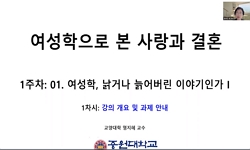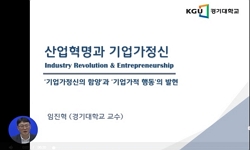‘5.4신문화운동’ 시기에 전개된 다양한 여성해방론 중에서 ‘연애’는 많은 여성들로 하여금 가부장적, 봉건적 문화의 폐해를 자신의 문제로 느끼게 해주었기 때문에 많은 호응을 얻을 수...
http://chineseinput.net/에서 pinyin(병음)방식으로 중국어를 변환할 수 있습니다.
변환된 중국어를 복사하여 사용하시면 됩니다.
- 中文 을 입력하시려면 zhongwen을 입력하시고 space를누르시면됩니다.
- 北京 을 입력하시려면 beijing을 입력하시고 space를 누르시면 됩니다.

‘혁명’의 실천과 실천적 ‘연애’ - 중국 연안(延安)시기 ‘연애’담론을 중심으로 - = The Practice of ‘Revolution’ and Practical ‘Love’: Focused on the Meaning of ‘Love’ in the Yenan Era of CCP
한글로보기https://www.riss.kr/link?id=A105592915
- 저자
- 발행기관
- 학술지명
- 권호사항
-
발행연도
2018
-
작성언어
Korean
- 주제어
-
등재정보
KCI등재
-
자료형태
학술저널
-
수록면
45-63(19쪽)
- DOI식별코드
- 제공처
-
0
상세조회 -
0
다운로드
부가정보
국문 초록 (Abstract)
‘5.4신문화운동’ 시기에 전개된 다양한 여성해방론 중에서 ‘연애’는 많은 여성들로 하여금 가부장적, 봉건적 문화의 폐해를 자신의 문제로 느끼게 해주었기 때문에 많은 호응을 얻을 수 있었다. 서구에서 유입된, ‘서로를 사랑하는 두 사람 사이의 친밀한 관계’를 의미하는 ‘연애’라는 용어는 배움을 통해 서구의 문화를 익힐 수 있었던 신여성들의 전유물로 인식 되어졌다.
延安시기에도 소위 사적인 것으로 간주되는 ‘연애’, ‘혼인’, ‘가정’과 같은 여성들의 경험이 공적영역의 의제로 논의되었다. 이 시기의 ‘연애’는 근대적 의미의 낭만적 사랑과 계몽적 성격을 지닌 ‘자유연애’ 담론과 달리, ‘혁명의 실천’을 의미하였다. ‘연애’는 이데올로기적 성격을 띤 사유와 행동양식이 되었으며, 이 시기의 ‘연애’담론은 개인주의적 성격을 벗어나 사회에 대한 책무가 강조됨으로써 근대의 사적 영역과 공적 영역이 조우하는 새로운 방식을 만들어냈다.
5.4신문화운동 시기, 여성의 ‘연애’를 성적방종으로 치부하였던 남성중심 논리와 마찬가지로, 延安시기에는 여성의 ‘연애’가 ‘혁명’으로 환원되지 않는 개인성의 추구로 인식되어 억압되었으며 호기심의 대상으로 전락되기도 하였다. 또한 여성성을 ‘가정’의 범주로 제한하는 전략으로 인해 여성에 대한 억압은 여전히 지속될 수밖에 없었고, ‘혁명’과 ‘항전’이 가지는 정당성으로 인해 여성에 대한 억압은 더욱 은폐될 수밖에 없었다.
다국어 초록 (Multilingual Abstract)
‘Love’, among various feminist theories deployed during the ‘May Fourth Movement’ period, naturally won immense responses as it made many women to realize the evils of patriarchal and feudal cultures, which were the issues that concerned them....
‘Love’, among various feminist theories deployed during the ‘May Fourth Movement’ period, naturally won immense responses as it made many women to realize the evils of patriarchal and feudal cultures, which were the issues that concerned them. The word ‘love’ was introduced by the West and referred to a ‘close relationship between two persons who are in love with each other’. Love was perceived as an exclusive property of modern women who became familiar with the Western culture through learning.
Women’s experiences that are considered private such as ‘Love’ and ‘Family’ had been also discussed as topics in public sphere in the Yenan Era. ‘Love’ in the Yenan Era referred to practice of revolution rather than romantic love in modern sense and ‘Free Love’ of enlightening nature. The perception of love and the method of expression regarding ‘Love’ and marriage became the reason and patterns of behavior of ideological nature. The discourse on love during this period emphasized on the responsibilities toward the society beyond the individualistic nature and created a new method that combined private and public spheres of modern age.
Like the male-centered theory which regarded women’s ‘Love’ as sexual laxity during the ‘May Fourth Movement’, women’s love was considered as a pursuit of individuality which does not return to revolution, thereby suppressing the suffering during the Yenan Era and degenerating into the subject of lascivious curiosity. Moreover, the suppression of women continued during the wartime due to the strategy that limited femininity to the scope of ‘family’ and was concealed even further due to the justification claimed by revolution and resistance to Japan.
동일학술지(권/호) 다른 논문
-
문학의 위기와 영화적 서사 - 스페인 아방가르드 소설의 경우 -
- 성신여자대학교 인문과학연구소
- 김찬기 ( Kim Chan-kee )
- 2018
- KCI등재
-
『트로일러스와 크레시다』에 나타난 극적 기법 - 점강법, 극중극, 토론을 중심으로 -
- 성신여자대학교 인문과학연구소
- 김상현 ( Kim Sang Hyun )
- 2018
- KCI등재
-
- 성신여자대학교 인문과학연구소
- 권은 ( Kwon Eun )
- 2018
- KCI등재
-
한국인 영어학습자의 영어자음군 발화에 대한 음향음성학적 분석 - 영어습득연령이 모음삽입오류에 끼치는 영향에 대하여 -
- 성신여자대학교 인문과학연구소
- 이고운 ( Goun Lee )
- 2018
- KCI등재




 KISS
KISS






